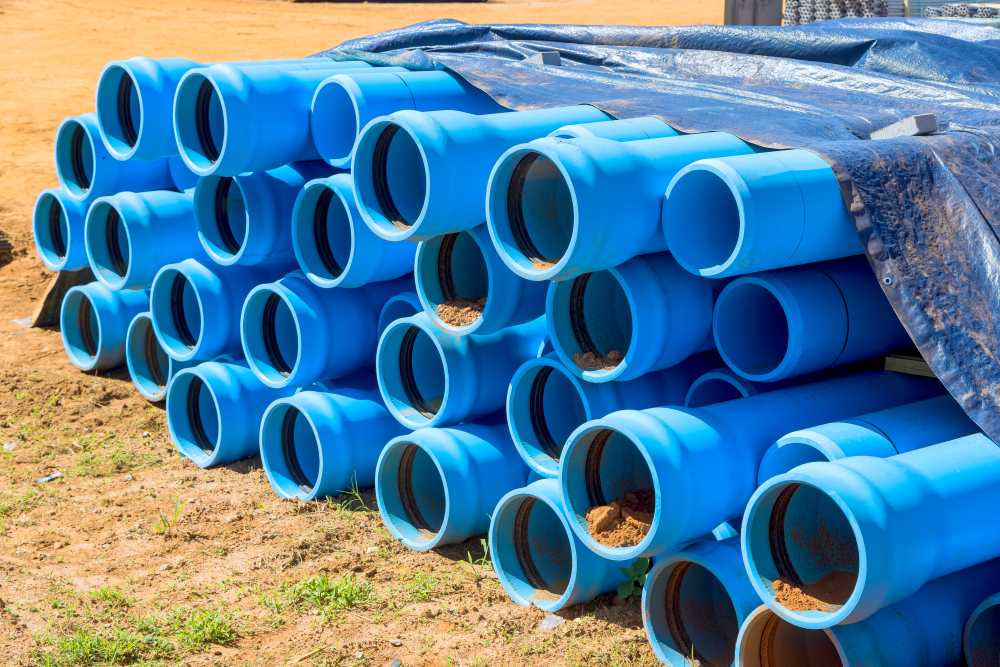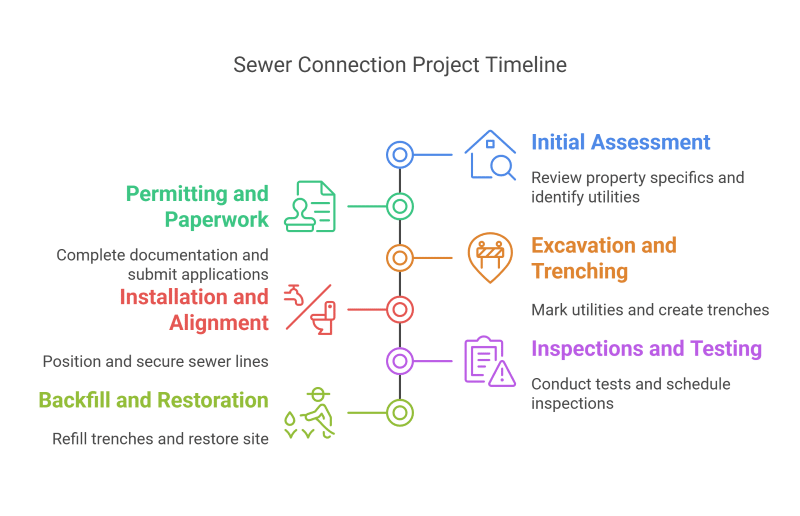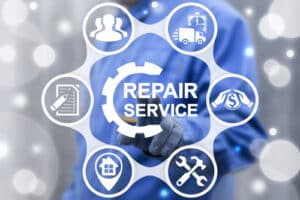
Hooking Up to Sewer Line in Suffolk County and Riverhead
A Comprehensive Guide
Ocean Air Services proudly offers commercial and residential solutions for hooking up to sewer line throughout Suffolk County and the Riverhead area. From the initial permitting process to final inspections, we handle every phase of municipal sewer connection and new sewer connection projects, ensuring that your property meets all local regulations. Whether you’re a homeowner needing a home sewer line connection to main or a business owner planning a new build sewer connection, our expertise helps you navigate the complexities so you can enjoy a seamless and fully compliant residential sewer tap or direct sewer connections for a commercial facility.
Why Proper Sewer Connections Matter
Establishing a reliable public sewer connection benefits you in several ways:
- Health and Safety
- Prevents contamination and sewage backups
- Safeguards water sources in Suffolk County and Riverhead
- Regulatory Compliance
- Meets local building codes and environmental standards
- Avoids legal or financial complications
- Enhanced Property Value
- A well-installed new connection to public sewer appeals to potential buyers or tenants
- Reduces the likelihood of future repairs
- Long-Term Sustainability
- Ensures efficient wastewater management
- Protects Riverhead’s natural ecosystem

Understanding the Process of Hooking Up to Sewer
Below is an outline of how hooking up to sewer line generally works in Suffolk County and Riverhead:
- Initial Assessment
- Review of property specifics, including soil conditions and local codes
- Identification of existing utilities to avoid accidental damage during excavation
- Permitting and Paperwork
- Completion of necessary documentation, including potential environmental clearances
- Submission of applications to local authorities for municipal sewer connection approval
- Excavation and Trenching
- Marking underground utilities per local guidelines
- Creating trenches at the correct slope to ensure proper drainage
- Installation and Alignment
- Positioning and aligning sewer lines accurately
- Securing joints and connections to prevent leaks or blockages
- Inspections and Testing
- Conducting pressure or gravity tests as required by Suffolk County and Riverhead regulations
- Scheduling official inspections to confirm full compliance
- Backfill and Restoration
- Refilling trenches and restoring paved or landscaped areas
- Removing debris and ensuring the site is left clean and orderly
Common Challenges and Proactive Solutions
| Challenge | Proactive Solution |
| Permit Delays | Initiate paperwork early, work with experts who know local Suffolk County processes. |
| Complex Terrain | Perform detailed site surveys; use specialized excavation strategies for uneven ground. |
| Shared Utilities | Coordinate with local utility providers to avoid damaging gas or electrical lines. |
| Environmental Restrictions | Obtain necessary clearances to protect wetlands, water bodies, or other sensitive habitats. |
| Project Scheduling | Plan around community events or seasonal constraints to minimize disruptions. |
Key Factors to Consider
- Local Regulations
- Suffolk County and Riverhead ordinances may require specialized inspections for new build sewer connection projects.
- Failing to comply can result in fines or delays.
- Contractor Credentials
- Verify that your chosen professionals are licensed and insured.
- Look for contractors with a track record in residential sewer tap and commercial sewer projects.
- Property-Specific Needs
- Coastal areas or wetlands might require special approvals.
- Urban sites may involve working around shared easements or underground networks.
- Maintenance Planning
- Schedule regular checkups on your direct sewer connections to detect early signs of blockage.
- Proper maintenance prolongs the lifespan of your system.
Frequently Asked Questions (FAQ)
1. Do I Need a Special Permit for a Residential Sewer Tap in Suffolk County or Riverhead?
Yes, securing the correct permits is often a mandatory requirement when planning a residential sewer tap or home sewer line connection to main in Suffolk County and Riverhead. These localities typically have building, environmental, and plumbing codes you must comply with before breaking ground. The process can involve multiple steps—filling out forms, submitting blueprints, and scheduling on-site evaluations.
Property owners near environmentally sensitive regions, like wetlands or coastal areas, may need additional authorization from county or state departments. It’s also crucial to plan your timeline around possible waiting periods for permit review and approval. Working with a knowledgeable contractor who has hands-on experience in Suffolk and Riverhead can significantly streamline the process.
They can guide you in assembling the required documents accurately, anticipate queries from local authorities, and keep track of critical deadlines. Taking these steps not only ensures compliance but also helps you avoid costly penalties or project shutdowns. Ultimately, thorough preparation and the right professional support are the keys to a smooth, efficient approval process, setting the stage for a properly installed new sewer connection that meets all local standards.
2. How Long Does It Typically Take to Complete a Home Sewer Line Connection to Main?
The duration for hooking up to sewer line can vary from a few days to several weeks, depending on multiple factors. First, the property’s location and site conditions play a significant role—if your home is situated in a congested area or has challenging terrain, excavation might require more time. Second, the permitting process in Suffolk County or Riverhead could introduce delays; you may need to accommodate inspection schedules and possible re-inspections.
Third, weather can be a critical influencer—heavy rains or snow can halt progress and affect soil stability. Fourth, existing infrastructure complexities, such as shared utility corridors, can extend timelines if coordination with local gas or electrical providers is necessary. Lastly, communication between you and your contractor is vital—clear, consistent updates keep everyone aligned on goals and deadlines. If surprises like unmarked pipes or unexpected soil conditions emerge, having a contingency plan helps minimize setbacks.
Skilled contractors usually conduct thorough initial assessments to anticipate these issues in advance, but it’s wise to build a buffer into your timeline to manage unforeseen disruptions. By proactively handling these aspects, you can ensure your residential sewer tap project remains on schedule and meets local regulations without undue stress.
3. What Are the Requirements for Coastal or Wetland Properties in Suffolk County?
If your property lies in or near coastal zones or wetlands within Suffolk County, expect a more detailed approval process for new build sewer connection projects. Local authorities prioritize the protection of sensitive habitats and water sources, so they often require additional environmental reviews. This can involve site assessments by qualified engineers or environmental consultants, who look for issues like soil erosion risks, proximity to floodplains, and potential impacts on local wildlife. You may also be asked to submit detailed construction plans that outline mitigation strategies—steps you’ll take to limit soil disturbance, reduce runoff, and prevent contamination of nearby waters.
Additionally, some properties in high flood-risk areas might necessitate elevated or specially reinforced sewer infrastructure. Coordination with multiple agencies, such as local conservation boards and state-level environmental departments, is frequently part of the process. Clear communication about timelines and documentation requirements can help you avoid penalties or costly project delays.
Contractors experienced in this niche can streamline your approval process by ensuring all permits and environmental guidelines are addressed from the start. Overall, while properties in sensitive regions face extra scrutiny, planning and due diligence ensure your municipal sewer connection respects the environment and operates effectively for years to come.
4. Are There Grants or Financial Aids for New Sewer Connection Projects?
Various government bodies, nonprofits, or local organizations may offer financial incentives to encourage property owners to transition to a public sewer connection, especially if it replaces older, less environmentally friendly systems. Whether you’re in Riverhead or elsewhere in Suffolk County, these programs can come in the form of grants, low-interest loans, or even tax credits. The goal is often to promote responsible wastewater management, thereby protecting shared water resources and improving public health.
However, funding availability and eligibility criteria vary, so thorough research is crucial. Some programs target low-income households, while others support broad community-driven initiatives aiming to modernize entire neighborhoods. Documentation typically plays a central role in the application process; you may need to show project plans, estimates, proof of property ownership, or prior inspection reports. Since these incentives can change from year to year based on legislative decisions and budget allocations, staying updated through local government websites or community bulletins is essential.
Contractors who regularly work on residential sewer connection projects may also be aware of current funding opportunities and can guide you through the application steps. Though financial aid won’t always cover all project expenses, it can significantly lower your out-of-pocket costs, making a new sewer connection more accessible and budget-friendly.
5. How Often Should I Schedule Inspections for My Residential or Commercial Sewer Connection?
It’s advisable to schedule routine inspections at least once every year or two for both residential and commercial direct sewer connections. However, properties with unique conditions—like older buildings, heavy usage, or areas prone to soil movement—might benefit from more frequent checkups. Regular inspections help identify emerging issues, such as root infiltrations, small leaks, or gradual clogs, before they escalate into full-blown emergencies.
During these evaluations, trained professionals typically use specialized cameras to examine the interior of your lines, looking for cracks, blockages, or signs of wear that may not be noticeable from the surface. Early detection is key to preventing major disruptions, which can include damaging backups, environmental violations, or costly structural repairs.
Furthermore, scheduled maintenance visits provide an opportunity to ensure that your municipal sewer connection remains in compliance with evolving local codes in Suffolk County and Riverhead. For commercial facilities, where multiple occupants or tenants rely on continuous service, proactive inspections become even more critical—downtime could impact business operations and customer satisfaction. Ultimately, adopting a habit of periodic checkups is a simple yet highly effective way to maintain the integrity and performance of your hooking up to sewer line installation for years to come.
Conclusion and Next Steps
A properly executed new connection to public sewer—whether for a single-family home or a bustling enterprise—requires meticulous planning, consistent adherence to local rules, and attention to ongoing maintenance. By focusing on these fundamentals, you can ensure a smooth and efficient home sewer line connection to main or commercial sewer hookup in Suffolk County and the Riverhead region. From navigating permits to final inspections, Ocean Air Services helps you achieve a fully compliant installation.
Ocean Air Services: Your Local Sewer Connection Specialists in Suffolk County and Riverhead
Ocean Air Services provides reliable, end-to-end solutions for hooking up to sewer line in commercial and residential buildings across Suffolk County, Riverhead, and surrounding areas. Ready to begin or have more questions about direct sewer connections? Reach out today:
- Phone: (631) 846-8855
- Contact Form: Ocean Air Services
We look forward to guiding you through each phase, ensuring a hassle-free experience and a top-quality residential sewer tap or municipal sewer connection for your property.






